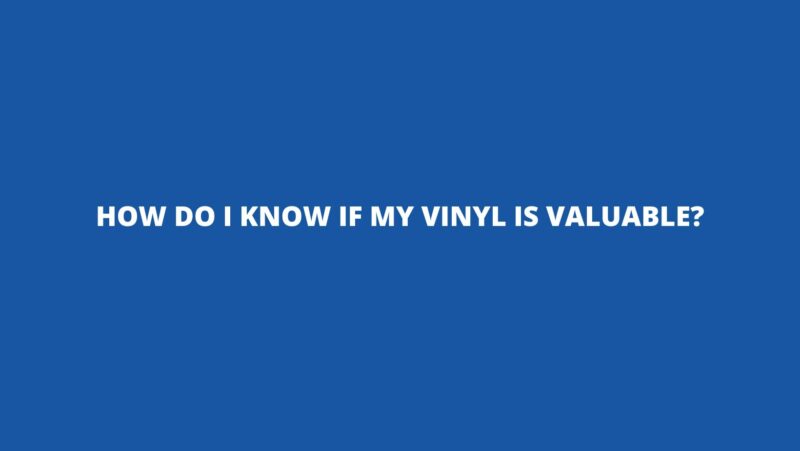In the world of vinyl records, the allure of discovering valuable gems among your collection is an exciting prospect for collectors, enthusiasts, and music lovers alike. As vinyl experiences a resurgence in popularity, the question of how to determine the value of your vinyl records becomes increasingly relevant. Whether you’ve inherited a collection, stumbled upon rare finds, or have been curating your records over the years, understanding the factors that contribute to a record’s value can provide insights into the treasures you hold. This article delves into the world of vinyl record valuation, guiding you through the process of assessing the worth of your collection.
The Essentials of Vinyl Record Valuation
Valuing vinyl records involves a combination of factors, including rarity, condition, demand, historical significance, and market trends. By considering these key elements, you can better assess the value of your vinyl records and gain a deeper appreciation for the unique pieces in your collection.
- Rarity and Scarcity: Rarity is a crucial factor in determining the value of a vinyl record. Records that were produced in limited quantities, are part of a first pressing, or feature unique attributes such as colored vinyl or special packaging tend to be more valuable. Research the production history and edition details of your records to determine their rarity.
- Condition: The condition of a vinyl record plays a significant role in its value. Records in mint or near-mint condition—with minimal wear, scratches, and defects—command higher prices. Check the vinyl’s surface, the album cover, and any inserts for signs of wear or damage.
- Demand and Popularity: The demand for a specific artist, album, or genre greatly influences the record’s value. Albums from iconic artists, genre-defining releases, or albums that resonate with cultural moments tend to have higher demand. Research the popularity and historical significance of your records within the broader context of music history.
- Historical Significance: Vinyl records that played a pivotal role in shaping music history, culture, or societal movements often hold greater value. Albums that introduced groundbreaking techniques, marked a turning point in an artist’s career, or captured a specific era’s spirit can be highly sought after.
- Market Trends: Stay informed about current market trends and collecting preferences. Certain genres, artists, or eras may experience shifts in demand and value over time. Online marketplaces, record shops, and collector communities can provide insights into the latest trends.
Steps to Determine the Value of Your Vinyl Records
- Research the Release: Gather information about the release date, label, catalog number, and any unique features of the record. Online databases, discography websites, and specialized collector forums can help you gather accurate details.
- Check Discogs and Price Guides: Websites like Discogs offer a comprehensive database of vinyl releases, along with historical pricing data. Consult vinyl price guides or collector magazines that provide insights into the current value of specific records.
- Evaluate the Condition: Thoroughly inspect the vinyl, album cover, and any inserts for wear, scratches, tears, and defects. The better the condition, the higher the value. If you’re unsure about grading, learn about the Goldmine Standard or consult a professional grading service.
- Compare Listings and Sales: Browse online marketplaces, auctions, and record stores to compare listings and recent sales of similar records. Note the condition, edition, and demand when assessing the value of your record.
- Consult Experts and Collectors: Engage with fellow collectors, attend record fairs, or join online forums where experienced collectors can offer insights into vinyl valuation. Their expertise and knowledge can help you accurately determine the value of your records.
Factors That Influence Vinyl Record Values
- Genre and Style: Certain music genres and styles have dedicated fan bases, influencing the demand and value of records within those genres. Rock, jazz, punk, and soul records are often highly collectible.
- Artist Reputation: Records from well-known and influential artists, especially those with cult followings or iconic status, tend to hold higher value. Consider the artist’s impact on music history and their overall reputation.
- First Pressings: First pressings are the initial batch of records produced from the original master tapes. They often have better sound quality and can be more valuable due to their historical significance.
- Limited Editions and Variants: Limited editions, colored vinyl, picture discs, and other unique variants are highly collectible and can command higher prices due to their scarcity.
- Album Cover Artwork: Album cover artwork can contribute to a record’s value, especially if it’s considered iconic, visually appealing, or reflective of a specific era.
- Promotional Copies and Test Pressings: Promotional copies sent to radio stations, journalists, or industry professionals, as well as test pressings used for quality control, are rare and can have significant value.
- Cultural Significance: Albums associated with historical events, cultural movements, or social commentary can hold elevated value due to their impact on society beyond music.
- Unopened or Sealed Records: Sealed records, especially those in pristine condition, often hold higher value due to their preservation of the original state and packaging.
Conclusion
Determining the value of your vinyl records requires a blend of research, analysis, and an understanding of the multifaceted factors that contribute to their worth. As you delve into the process of valuation, remember that the value of vinyl records transcends monetary figures; it encompasses the cultural, historical, and emotional significance they hold for collectors, enthusiasts, and music lovers. By exploring the rarity, condition, demand, and market trends associated with your records, you can gain a deeper appreciation for the treasures within your collection and continue to uncover the magic of analog sound in the digital age.


